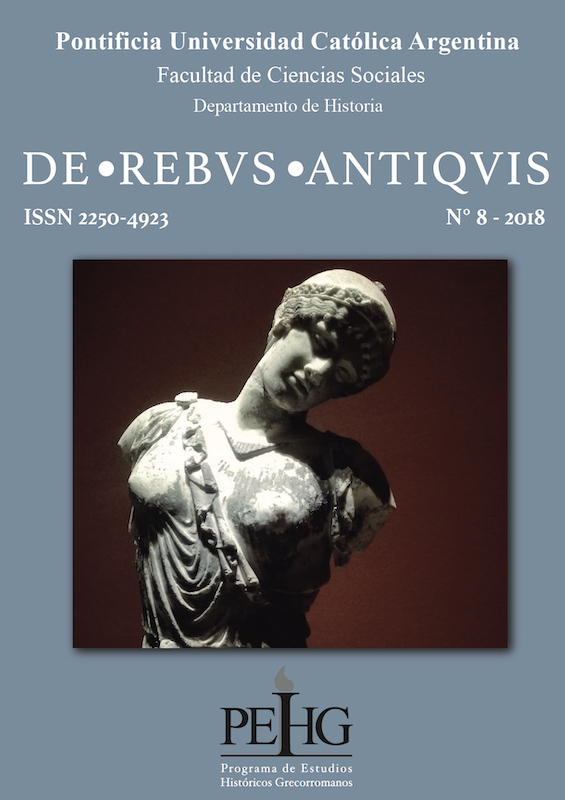Between theater and democracy: The representation of the feminine in Aristophanes’ Comedies
Keywords:
History of Ancient Greece, Gender relations, Aristophanic Comedy, Married womenAbstract
In Classical Athenian society, we find the definition of some social roles imputed to men and women, roles closely linked to the notions of gender of the period. Such definition was supported by a masculinized logic that permeated all activities - public and private - of the Athenian polis. However, despite this logic, we envision the representation of the female acting in Aristophanes' comedies, and also interlaced with more fluid and heterogeneous identity marks compared to those consecrated by historiography. In other words, the comic writer inserted active women in his plays, presenting another possible model of behavior in Athenian society, as well as a positive view of such women, especially the legitimate wives. In this article, we intend to discuss the construction of female characters by the comic writer, with special attention to married women, as well as to problematize the gender identities built in Classical Athens and manifested by the poet in his comedies.
Downloads
References
REFERÊNCIAS BIBLIOGRÁFICAS:
ARISTÓFANES. (1988). Os Acarnenses. Introdução, versão do grego e notas de Maria de Fátima Sousa e Silva. Coimbra: Instituto Nacional de Investigação Científica.
______. (1998). Acharnians. Knights. Editado e traduzido por Jeffrey Henderson. Loeb Classical Library 178. Cambridge, Massachusetts, London: Harvard University Press.
______. (1998). Clouds. Wasps. Peace. Editado e traduzido por Jeffrey Henderson. Loeb Classical Library 488. Cambridge, Massachusetts, London: Harvard University Press.
______. (2000). Birds. Lysistrata. Women at the Thesmophoria. Editado e traduzido por Jeffrey Henderson. Loeb Classical Library 179. Cambridge, Massachusetts, London: Harvard University Press.
______. (2002). Frogs. Assemblywomen. Wealth. Editado e traduzido por Jeffrey Henderson. Loeb Classical Library 180. Cambridge, Massachusetts, London: Harvard University Press.
______. (2005). Duas Comédias: Lísistrata e As Tesmoforiantes. Tradução, apresentação e notas Adriane da Silva Duarte. São Paulo: Martins Fontes.
OBRAS GERAIS:
BLUNDELL, S. (1998). Women in Classical Athens. London: Bristol Classical Press.
______. (1995). Women in Ancient Greece. London: British Museum Press.
DUARTE, A. S. (2000). O Dono da Voz e a Voz do Dono: a parábase na comédia de Aristófanes. São Paulo: Humanitas.
JONES, P.V. (1997). O Mundo de Atenas. São Paulo: Martins Fontes.
MOODIE, E. K. (2012). Aristophanes, the Assemblywomen and The Audience: The Politics of Rapport. The Classical Journal, 105, 257-281.
SILVA, M. F. S. (1987). Crítica do teatro na comédia antiga. Coimbra: Instituto Nacional de Investigação Científica.
Downloads
Published
How to Cite
Issue
Section
License










